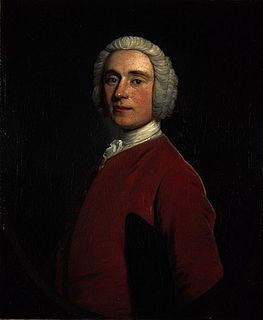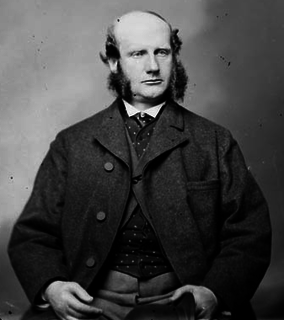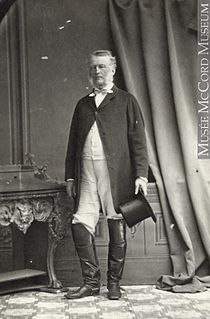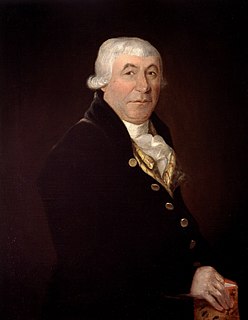Lt.-Colonel The Hon. James Irvine J.P., M.P. (1766 – September 27, 1829) was a businessman and political figure in Lower Canada.
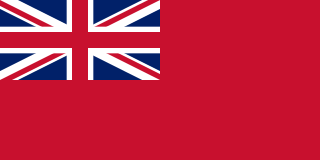
The Province of Lower Canada was a British colony on the lower Saint Lawrence River and the shores of the Gulf of Saint Lawrence (1791–1841). It covered the southern portion of the current-day Province of Quebec, Canada, and the Labrador region of the modern-day Province of Newfoundland and Labrador.
James Irvine was born in England in 1766, the son of Adam Irvine (1736–1776) and Elizabeth (1731–1818), daughter of John Johnston (1696–1757), 3rd Laird of Outbrecks, Orkney. Irvine was a nephew of Lt.-Colonel James Johnston (1724-1800), of Quebec, brother-in-law of Mathew MacNider and grandfather of Lady Meredith. Adam Irvine, a merchant, came to Quebec City soon after James' birth. He formed a retail firm in partnership with John Munro that operated until 1797, when Irvine returned to England. The following year, he formed an import/export company with John McNaught and later James Leslie.

England is a country that is part of the United Kingdom. It shares land borders with Wales to the west and Scotland to the north-northwest. The Irish Sea lies west of England and the Celtic Sea lies to the southwest. England is separated from continental Europe by the North Sea to the east and the English Channel to the south. The country covers five-eighths of the island of Great Britain, which lies in the North Atlantic, and includes over 100 smaller islands, such as the Isles of Scilly and the Isle of Wight.
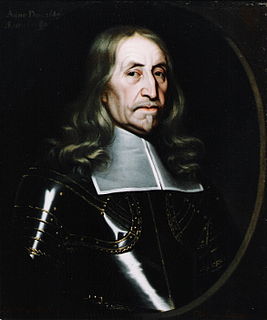
Laird is a generic name for the owner of a large, long-established Scottish estate, roughly equivalent to an esquire in England, yet ranking above the same in Scotland. In the Scottish order of precedence, a laird ranks below a baron and above a gentleman. This rank is only held by those lairds holding official recognition in a territorial designation by the Lord Lyon King of Arms. They are usually styled [name] [surname] of [lairdship], and are traditionally entitled to place The Much Honoured before their name.
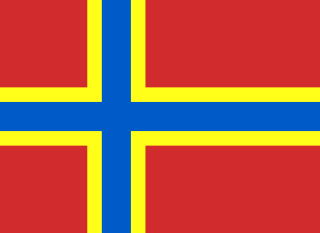
Orkney, also known as the Orkney Islands, is an archipelago in the Northern Isles of Scotland, situated off the north coast of the isle of Great Britain. Orkney is 10 miles (16 km) north of the coast of Caithness and comprises approximately 70 islands, of which 20 are inhabited. The largest island, Mainland, is often referred to as "the Mainland", and has an area of 523 square kilometres (202 sq mi), making it the sixth-largest Scottish island and the tenth-largest island in the British Isles. The largest settlement and administrative centre is Kirkwall.
In 1801, he married Anne, the daughter of John George Pyke M.P., of Halifax, Nova Scotia, by his wife Elizabeth, sister of John Allan (colonel), two of the children of Major William Allan (1720–1790). Their son, Lt.-Colonel John George Irvine (1802–1871), served as A.D.C. to the Governor-General and was chosen to be acting adjutant-general to attend on the Prince of Wales (the future Edward VII of the United Kingdom) during his visit to Canada in 1860/61. James and Anne Irvine were the grandparents of George Irvine, Acheson Irvine and Commissary-General Matthew Bell Irvine (1832–1889) C.B., C.M.G., of the British Army. Deputy Controller Matthew Bell Irvine, C.B., C.M.G., second son of Lieut.-Col. J. G. Irvine, Dominion A.D.C. to the Governor-General, Matthew Bell Irvine married Charlotte Feodore Louisa Augusta, daughter of Rev. Narcisse Guerout, rector of Berthier, P.Q., June 2, 1875. [1] Irvine served as chairman for the Quebec Committee of Trade from 1809 to 1822, and was President of the Agricultural Society of Quebec. He also was warden of Trinity House of Quebec. He was elected to the Legislative Assembly of Lower Canada for the Upper Town in 1810 and served until 1814. He was a member of the Executive Council from 1808 to 1822. Irvine served as a member of the Legislative Council of Lower Canada from 1818 to 1829. In 1824, he represented Lower Canada in the arbitration for the sharing of customs duties with Upper Canada. He was a member of the local militia, serving during the War of 1812 and eventually attaining the rank of lieutenant-colonel, and also served as justice of the peace. Irvine was a member of the Quebec Fire Society, serving as vice-president in 1807.
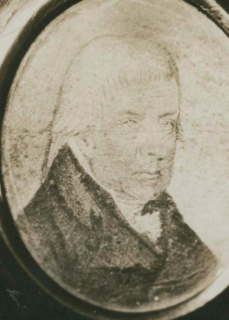
John George Pyke was an English-born merchant and political figure in Nova Scotia. He represented Halifax County from 1785 to 1799 and Halifax Township from 1799 to 1800 and from 1802 to 1818 in the Nova Scotia House of Assembly. He also became head of the Police department. He survived the Raid on Dartmouth (1751) but his father Abraham did not.

Halifax, formally known as the Halifax Regional Municipality (HRM), is the capital of the Canadian province of Nova Scotia. It had a population of 403,131 in 2016, with 316,701 in the urban area centred on Halifax Harbour. The regional municipality consists of four former municipalities that were amalgamated in 1996: Halifax, Dartmouth, Bedford, and Halifax County.
Colonel John Allan M.P. J.P. was a Canadian politician who became an officer with the Massachusetts Militia in the American Revolutionary War. He served under George Washington during the Revolutionary War as Superintendent of the Eastern Indians and Colonel of Infantry, and he recruited Indian tribes of Eastern Maine to stand with the Americans during the war and participated in border negotiations between Maine, and New Brunswick.
He owned a number of properties in Quebec and extensive farmland in the surrounding area. He lived with his family at his Sainte-Foy estate, Belmont House, which he bought for £4,000 in 1817 from his relation Sir John Caldwell (seigneur) 6th Bt., of Wellsburrow, Co. Fermanagh and Caldwell Manor, Quebec. Irvine was related to many of the foremost Anglo-Quebec families from the time of the British conquest of Canada. He died in Quebec City in 1829.
Sir John Caldwell was a businessman and politician in Lower Canada and the only son of Henry Caldwell, the receiver general of Lower Canada from 1794.

